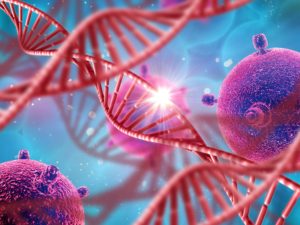
Many crucial processes occur while we sleep, including memory formation, hormone regulation, and muscle repair. DNA helps carry out functions on a cellular level, and it’s during sleep that DNA does much of its work.
It is known that having damaged or impaired DNA increases the risk of disease. This prompted researchers to look further into the link between sleep and DNA as a means of reducing illness.
The study took place over a four-month period where 49 doctors were split into two groups. One group received seven to eight hours of sleep while the other slept two to four hours. Blood samples were taken from both groups and were analyzed.
The group with the least amount of sleep had greater DNA damage and DNA repair expression was reduced. These changes occurred after one night of poor sleep, which suggests that DNA plays an important role in our health. Even one night of poor sleep is enough to increase our risk of disease.
The study highlights the importance of sleep in maintaining overall good health. Furthermore, it reveals the importance of sleep on a molecular level. If you are struggling to sleep each night, speak to your doctor about your options and to determine the underlying cause of your sleepless nights.
Also read: